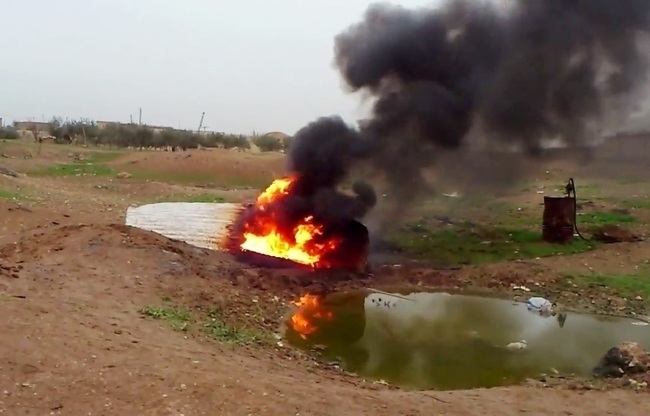In the same week at the beginning of this month, the Syrian government increased the price of gas oil and gasoline, and allowed private traders to import various oil derivatives, ending a decades-old state monopoly on oil trade.
The increases of 33 percent in the price of gas oil and of 17 percent in the price of gasoline were expected given that Syria now imports most of its oil and that the decline of the Syrian Pound relative to the dollar increased significantly the cost of these imports.
However, the timing of the decision was strange because it occurred just a few days before Eid Al-Adha, the most important religious holiday in the country, and a period during which the government usually tries to appease its population, not burden it with a price hike.
The increase will likely have a significant inflationary impact. Last year, when the government also increased the price of heating oil, it announced at the same time a pay rise for public sector employees; not this time. The decision seem therefore to indicate some form of emergency, given also that it comes following the increase in the price of various products and services, such as bread, water and electricity, during the summer.
As to the decision to open the oil import trade to the private sector, it comes with some restrictions; traders can import only gas oil and fuel oil and are allowed to resell only to industrial concerns. Still, the move highlights the difficulties faced by state entities, most of which are under western sanctions, to buy from international markets. The Minister of Economy commented on the decision saying that it would reduce shortages faced by manufacturers.
The government requires that importers obtain various approvals and licenses granted by the Central Bank of Syria, Mahrukat and the Directorate of Industry in each Governorate before they can import. This is normally a good way to select traders in order to favor those most closely associated with security and other regime officials.
It may be a coincidence but the two decisions – to increase the price of oil products and to allow imports from the private sector – were taken only a few days after the US-led international coalition bombed most of the oil refineries handled by ISIS in the eastern region. There have been various reports in the last year that the government was buying some of its oil from ISIS and the fact that these two decisions follow the destruction of the refineries – which likely reduced overall supply in the market – will again raise speculations on this issue.
Another aspect must also be taken into account here. Since August 2013, Syria has been relying largely on Iran to buy its oil, thanks to a USD 3.6 billion credit line granted by Tehran to Damascus to finance its imports. In practice, Iran is not believed to be providing cash but rather to supply crude oil instead. It is not clear how much of this credit line is still available but it is likely that Tehran, which has its own economic difficulties, will not be able to forever support the Syrian government.
While the government’s twin decisions may appear as based on purely economic grounds, they may also be a means to bypass its dependency on both Tehran and…ISIS.
......


